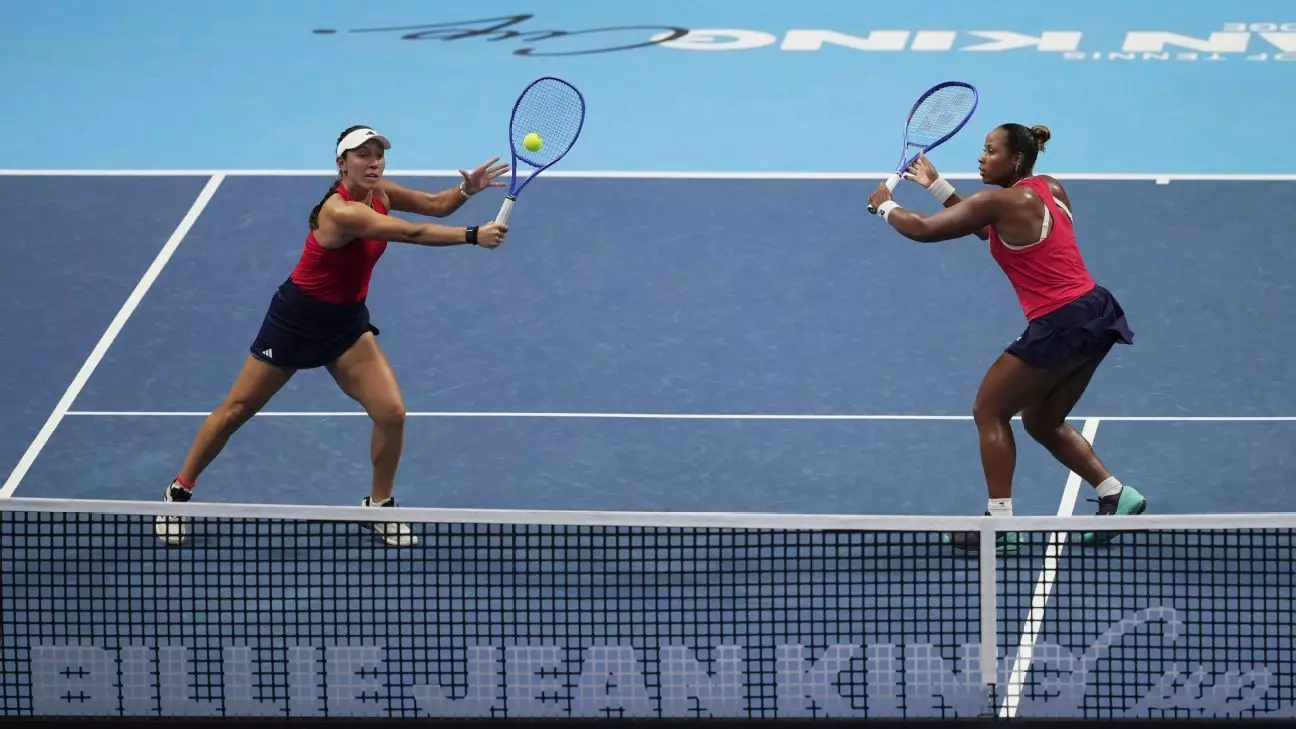The recent performance of the United States in the Billie Jean King Cup signifies more than just a passage into the semifinals; it marks a pivotal moment of resilience and strategic resurgence. After several years of fluctuating results, Team USA demonstrated a formidable attitude, with standout performances that shattered doubts about their current competitiveness. Jessica Pegula and Taylor Townsend’s decisive doubles victory exemplifies the deep talent pool and unbreakable team spirit cultivated by American tennis. Their ability to overcome key setbacks—most notably Pegula’s loss to Elena Rybakina—highlighted the team’s capacity for mental toughness. It’s a narrative of persistence, where setbacks become catalysts for growth rather than insurmountable obstacles.
Strategic Brilliance in Doubles and Resilience in Singles
The American victory was not merely a matter of individual excellence but a testament to their cohesive strategy. Townsend, the world’s top doubles player, showcased her dominance early on, setting the tone for the doubles match and inspiring her teammate. The match’s culmination on a Rybakina double fault in the tiebreak underscores the importance of mental composure, even in high-pressure moments. Meanwhile, Pegula’s redemption effort against Rybakina—after a grueling loss—reflects the grit of a player committed to personal and team success. Emma Navarro’s astonishing win in the singles, after facing two match points down, epitomizes the grit and fighting spirit that American tennis needs to maintain its legacy.
Implications for Team USA and Global Competitiveness
This resurgence offers a beacon of hope for American tennis fans and players alike. The team’s performance reveals an undercurrent of depth, now emerging confidently onto the world stage. Their upcoming match against Britain promises to be a compelling showdown, with both teams demonstrating resilience and tactical prowess. Moreover, the US’s ability to rally from setbacks and secure their spot in the semifinals challenges the narrative that American tennis lacks depth or resilience in team competitions. It signals a potential renaissance fueled by young talent and seasoned veterans who refuse to surrender, regardless of the mounting pressures or previous disappointments.
Global Perspective and the Cycle of Competition
In a broader context, the tournament underscores how perseverance and strategic adaptation are vital in tennis’s ever-evolving landscape. Countries like Ukraine and Italy move forward, illustrating that resilience isn’t exclusive to the US but a universal trait among top-tier teams. Yet, the American team’s return to prominence challenges nations who had previously dominated the sport. It provides a compelling lesson: sustained excellence hinges not just on talent but on a resilient mindset and relentless pursuit of victory. The Billie Jean King Cup, formerly known as the Fed Cup, remains a symbol of international competition that prizes strategic depth and mental fortitude, qualities that the US team’s recent performances have vividly displayed. This tournament’s ongoing narrative reminds us that in tennis, as in life, unwavering spirit and strategic grit are often the true indicators of future success.

